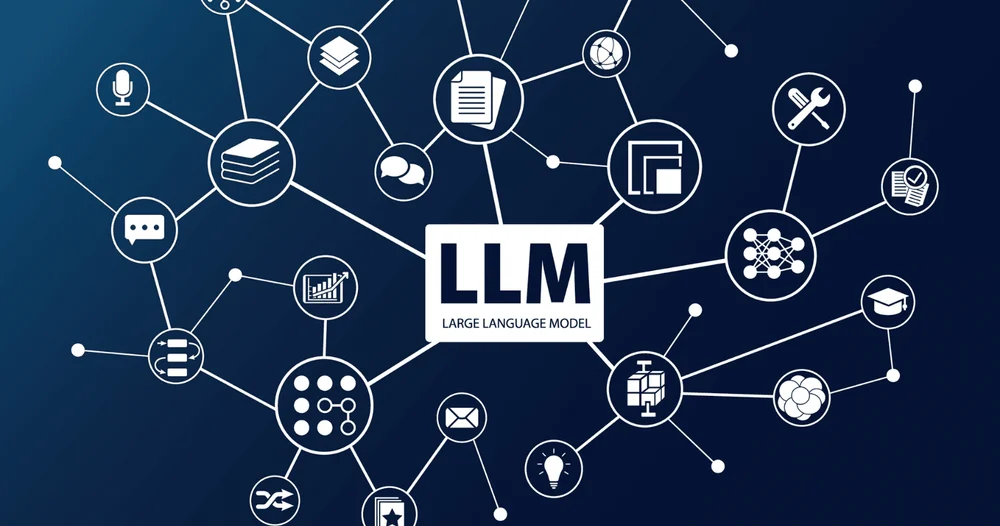 In today’s rapidly evolving technological landscape, AI LLMs (Large Language Models) are driving transformative changes across industries. Powered by cutting-edge Artificial Intelligence (AI) and Machine Learning (ML), AI LLMs are revolutionizing how organizations create content, automate processes, and analyze data. However, as their capabilities expand, so do concerns about data privacy and security—particularly in sensitive fields like life sciences. This has led to the emergence of private AI LLMs, offering tailored solutions to address these challenges while maximizing their potential.
In today’s rapidly evolving technological landscape, AI LLMs (Large Language Models) are driving transformative changes across industries. Powered by cutting-edge Artificial Intelligence (AI) and Machine Learning (ML), AI LLMs are revolutionizing how organizations create content, automate processes, and analyze data. However, as their capabilities expand, so do concerns about data privacy and security—particularly in sensitive fields like life sciences. This has led to the emergence of private AI LLMs, offering tailored solutions to address these challenges while maximizing their potential.
What Are AI LLMs?
AI LLMs are advanced algorithms designed to process and generate human-like language. By analyzing massive datasets, these models enable:
- Content creation at scale.
- Customer interaction automation.
- Deep insights from unstructured data.
Their versatility has made them essential tools across industries like healthcare, finance, and marketing.
AI LLMs in Life Sciences
The life sciences industry has embraced AI LLMs to revolutionize key operations, from drug discovery to patient care. These models enhance efficiency by analyzing clinical trial data, streamlining workflows, and improving customer engagement. However, the use of AI LLMs in this sector requires careful consideration due to the sensitive nature of patient data and intellectual property.
The Case for Private AI LLMs
While public AI LLMs are widely used, they pose significant risks in sensitive industries. Public models rely on external datasets, increasing the likelihood of data breaches and AI hallucinations—where the model generates seemingly accurate but factually incorrect information. In healthcare, such errors can have life-threatening consequences.
To mitigate these risks, private AI LLMs have emerged as a secure alternative. These models operate within a controlled environment, leveraging in-house data to ensure confidentiality and minimize exposure to external threats.
Custom vs. API-based Private AI LLMs
Organizations can deploy private AI LLMs in two primary ways:
Building Custom AI LLMs
Custom AI LLMs are tailored to meet specific business objectives. They provide organizations with full control over data and allow for fine-tuning to address unique challenges. For life sciences, this means better analysis of clinical trial data, enhanced patient sentiment tracking, and compliance with regulatory standards.
However, building custom AI LLMs requires significant investment in infrastructure and expertise, making it a resource-intensive option.
Utilizing APIs for AI LLM Deployment
APIs offer a quicker, more cost-effective way to integrate AI LLMs into existing systems. Third-party providers manage the underlying technology, reducing the need for in-house expertise.
While convenient, API-based solutions present risks, including data privacy concerns and limited customization options. Entrusting sensitive data to external providers requires stringent security measures, such as encryption and periodic audits, to ensure compliance and prevent breaches.
Balancing Customization and Security
Customized AI LLMs provide a middle ground between building models from scratch and relying on APIs. They offer tailored solutions to address specific business needs while ensuring data security.
In life sciences, customized AI LLMs enable:
- Improved Clinical Data Analysis: Streamlining clinical trial processes to identify key insights.
- Enhanced Patient Engagement: Personalizing interactions for better customer satisfaction.
- Regulatory Compliance: Meeting strict industry standards for ethical AI deployment.
- Scalable Solutions: Adapting to the evolving needs of businesses.
Ethical AI Usage in AI LLMs
As AI LLMs become more prevalent, ethical considerations remain paramount. Organizations must ensure that models operate responsibly, prioritize data privacy, and comply with regulatory frameworks. Private AI LLMs provide the control needed to address these concerns while unlocking the full potential of generative AI.
The Future of AI LLMs
The evolution of AI LLMs promises to accelerate innovation across industries. In life sciences, these models are driving advancements in drug discovery, diagnostics, and patient care. Their ability to provide secure, data-driven insights will continue to shape the future of healthcare and beyond.
As AI LLMs advance, organizations must choose the right deployment strategy—whether through custom models, APIs, or tailored solutions—to harness their power responsibly. With the right approach, AI LLMs can revolutionize industries while maintaining ethical standards and protecting sensitive data.
Conclusion
AI LLMs are at the forefront of innovation, offering unparalleled opportunities for transformation across industries. For organizations in life sciences and other sensitive sectors, private AI LLMs strike the perfect balance between leveraging AI’s capabilities and safeguarding critical data. By prioritizing privacy, security, and customization, businesses can confidently deploy AI LLMs to drive efficiency, insights, and growth in an ever-evolving digital landscape.
Optimize your processes, enhance data security, and stay ahead of the curve with AI LLMs—where innovation meets responsibility.
Comments on “Addressing AI Hallucinations: Ensuring Accuracy in AI LLMs”